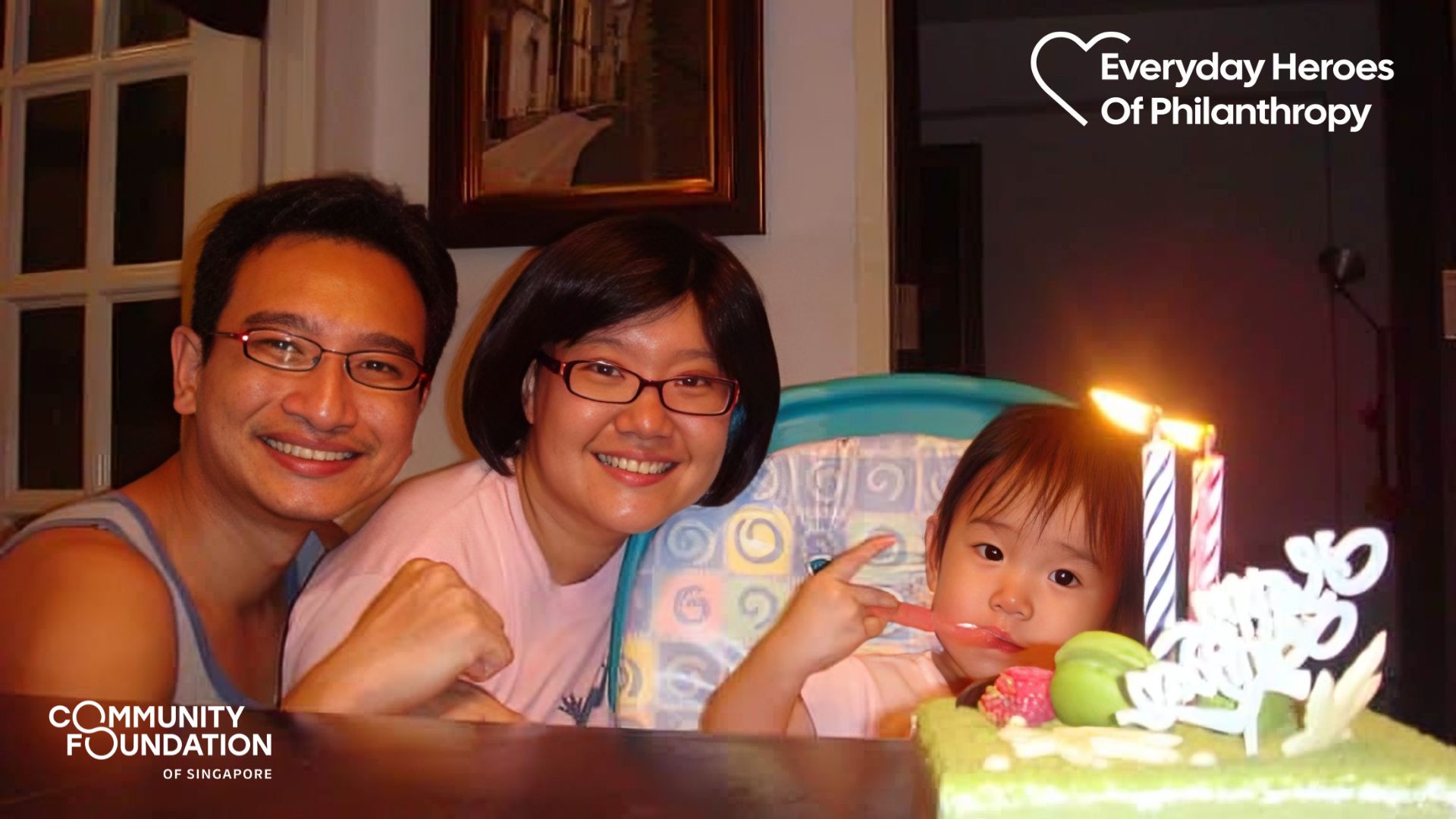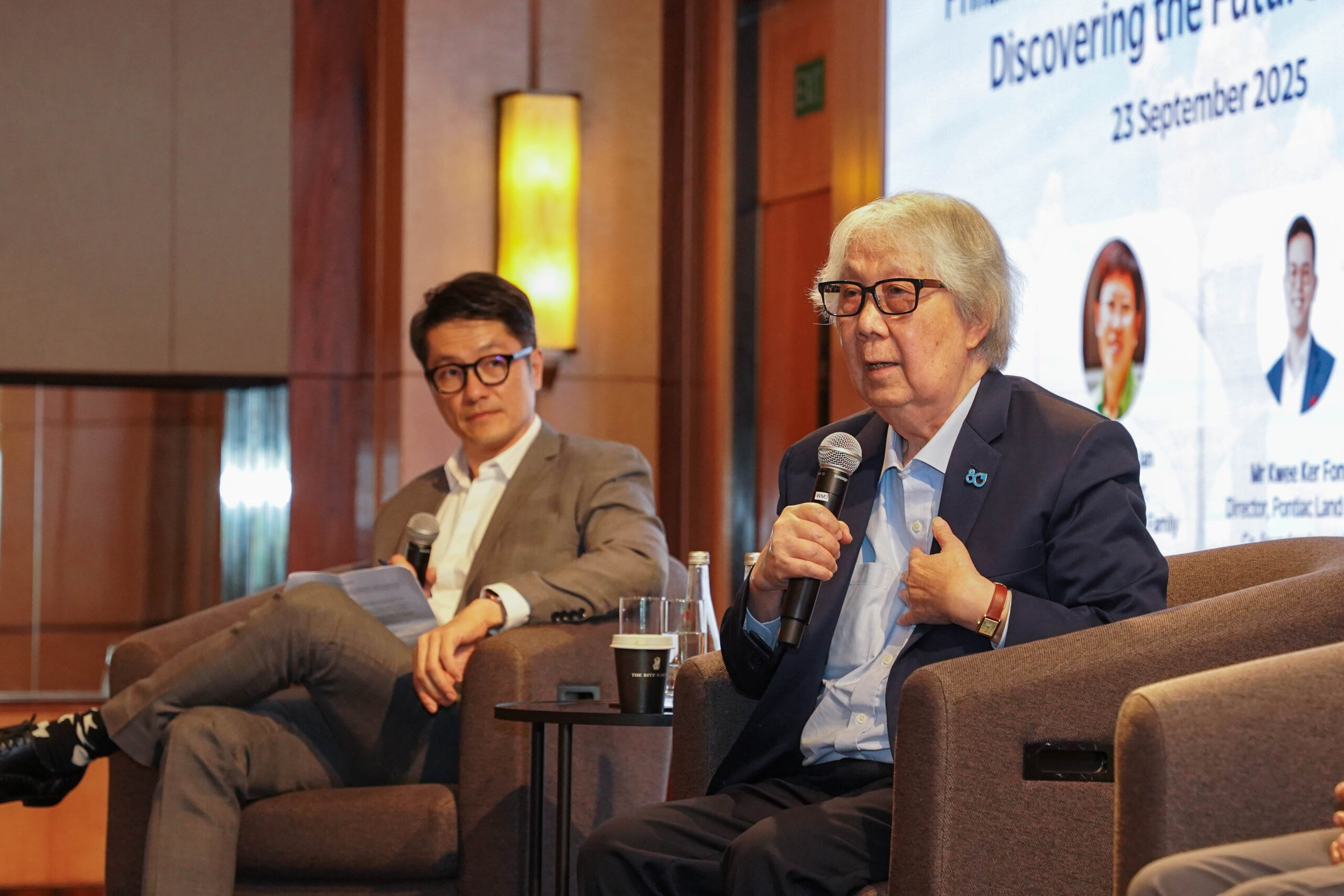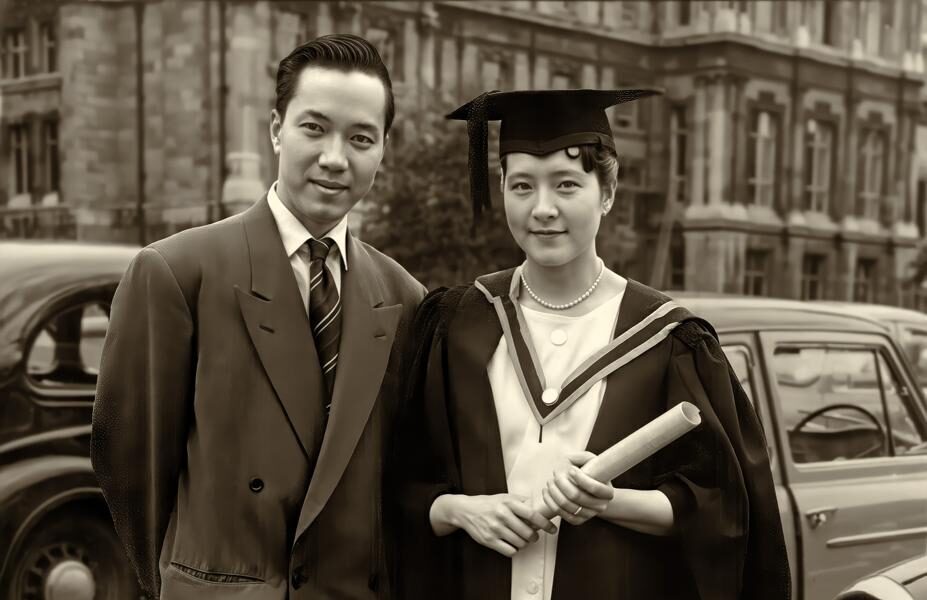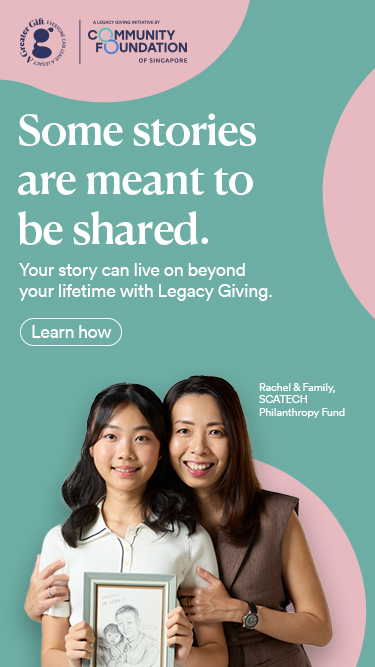The Business Times: A S$10m fund with a difference to address Singapore’s social issues

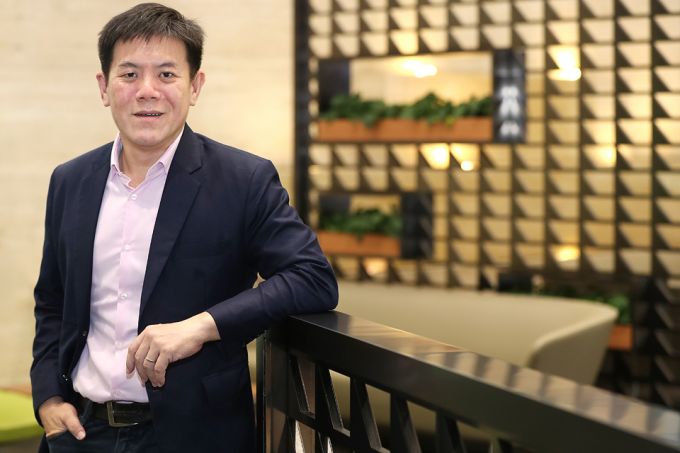
It seeks to foster tie-ups among stakeholders for long-term initiatives, rather than one-off donations
By Claudia Tan
Lunch affairs with Singapore Exchange (SGX) head of global sales and origination and executive vice-president, Chew Sutat, does not come cheap. But it is not because he prefers fine dining or a lavish meal, but rather, he is always looking out for opportunities to raise funds.
Mr Chew is known for chairing the SGX charity initiative Bull Charge since 2011. He is also chairman of Caregivers Alliance and the Kaki Bukit Grassroots organisation, among other key positions he holds.
“That’s why people joke that lunch with me is very expensive because invariably, there is always some cause that someone resonates with and I happen to be able to be a channel to help them give back,” said Mr Chew.
His inclination to contribute to society can be attributed to his days as a boy scout in Anglo Chinese School (ACS).
“As a kid, my first interaction with social causes was raising money as a scout,” said Mr Chew. He also chaired the Interact Club, which provides opportunities for students to serve the community, in secondary school.
While he was actively involved in social and community-based activities in his early days, he admitted to taking a backseat upon enrolling in university and entering the corporate world.
It was only when former SGX chief executive officer Hsieh Fu Hua came into the scene that Mr Chew reignited his passion for philanthropy. Mr Hsieh was responsible for initiating the Bull Charge back in 2004 and had always championed for charitable causes.
“Fu Hua was an inspiration and after he left SGX, I had the opportunity to chair the internal SGX corporate social responsiblity activities. He is also one of my key mentors that got me more involved in charity and community work later in my corporate life,” said Mr Chew.
His involvement in charity and community work made him realise that there exists what he coined as a “market failure” in fundraising efforts.
“There are a lot of young folks who may have an interest in doing good and want to set up charities for causes they are passionate about but money from many foundation owners may not necessarily find the way to these people who want to do good.”
“And many of them with the best intentions don’t necessarily have the experience, network or professional ability to set things up,” he said.
That was why when the new initiative Mind the Gap 200 (MtG200) was brought to his attention, he seized the opportunity to be a part of it.
Kickstarted by chief executive officer of Pavilion Capital Tow Heng Tan, MtG200 is a S$10 million fund set up by 11 donors, in their own private capacities, with the Community Foundation of Singapore (CFS) to address social issues in Singapore. MtG200 targets needs in four main areas – community, education, healthcare, and sustainability.
Mr Chew, who is the youngest member in MtG200, said that it was humbling for him to be able to fill the gaps of the “market failure”.
“The fund can create confidence for new initiatives to kick off and be a platform for others who would like to give back and bring about catalytic change,” said Mr Chew.
What sets this fund apart is that it aims to foster collaboration among stakeholders for long-term initiatives, rather than one-off donations.
“The MtG200 family of funds can leverage on each other in terms of their individual expertise to create something that is much bigger than what they can do on their own,” said Joyce Teo, deputy chief executive officer of CFS.
This is contrary to current charity efforts that involve a lot of event-based fundraising.
“Current initiatives create a very transactional relationship between the giver and the charities,” she said.
A fund like MtG200 will build a longer-term relationship with the charity partners, creating sustainability in terms of funds going into the charity sector.
Last week, MtG200 had already made a commitment of S$500,000 to Assisi Hospice to look into building capabilities in manpower and innovations to deliver palliative care.
But Mr Chew acknowledged that sparking change in the society extends beyond fundraising, and manpower is needed on the ground.
He recounted how he often gets mocked by his wife, who is a volunteer at an after-school care for those who come from economically disadvantaged backgrounds.
“She said she is doing the real work while I sit on charity boards and do the boring stuff,” said Mr Chew.
The challenges faced in the charity scene are plenty but the needs are even more, he said
“Bottom line is that there is a role for every individual. You may not be able to write that big cheque but a small cheque can go a long way. You may not be able to go into the sector fulltime but you may volunteer in other ways.”
On rumours that his active involvement in grassroots work may position him for a career in politics, Mr Chew replied, “My present plate of professional responsibilities, community and volunteering work is already more than full – supported by a very patient wife. Read more
It seeks to foster tie-ups among stakeholders for long-term initiatives, rather than one-off donations
By Claudia Tan
Lunch affairs with Singapore Exchange (SGX) head of global sales and origination and executive vice-president, Chew Sutat, does not come cheap. But it is not because he prefers fine dining or a lavish meal, but rather, he is always looking out for opportunities to raise funds.
Mr Chew is known for chairing the SGX charity initiative Bull Charge since 2011. He is also chairman of Caregivers Alliance and the Kaki Bukit Grassroots organisation, among other key positions he holds.
“That’s why people joke that lunch with me is very expensive because invariably, there is always some cause that someone resonates with and I happen to be able to be a channel to help them give back,” said Mr Chew.
His inclination to contribute to society can be attributed to his days as a boy scout in Anglo Chinese School (ACS).
“As a kid, my first interaction with social causes was raising money as a scout,” said Mr Chew. He also chaired the Interact Club, which provides opportunities for students to serve the community, in secondary school.
While he was actively involved in social and community-based activities in his early days, he admitted to taking a backseat upon enrolling in university and entering the corporate world.
It was only when former SGX chief executive officer Hsieh Fu Hua came into the scene that Mr Chew reignited his passion for philanthropy. Mr Hsieh was responsible for initiating the Bull Charge back in 2004 and had always championed for charitable causes.
“Fu Hua was an inspiration and after he left SGX, I had the opportunity to chair the internal SGX corporate social responsiblity activities. He is also one of my key mentors that got me more involved in charity and community work later in my corporate life,” said Mr Chew.
His involvement in charity and community work made him realise that there exists what he coined as a “market failure” in fundraising efforts.
“There are a lot of young folks who may have an interest in doing good and want to set up charities for causes they are passionate about but money from many foundation owners may not necessarily find the way to these people who want to do good.”
“And many of them with the best intentions don’t necessarily have the experience, network or professional ability to set things up,” he said.
That was why when the new initiative Mind the Gap 200 (MtG200) was brought to his attention, he seized the opportunity to be a part of it.
Kickstarted by chief executive officer of Pavilion Capital Tow Heng Tan, MtG200 is a S$10 million fund set up by 11 donors, in their own private capacities, with the Community Foundation of Singapore (CFS) to address social issues in Singapore. MtG200 targets needs in four main areas – community, education, healthcare, and sustainability.
Mr Chew, who is the youngest member in MtG200, said that it was humbling for him to be able to fill the gaps of the “market failure”.
“The fund can create confidence for new initiatives to kick off and be a platform for others who would like to give back and bring about catalytic change,” said Mr Chew.
What sets this fund apart is that it aims to foster collaboration among stakeholders for long-term initiatives, rather than one-off donations.
“The MtG200 family of funds can leverage on each other in terms of their individual expertise to create something that is much bigger than what they can do on their own,” said Joyce Teo, deputy chief executive officer of CFS.
This is contrary to current charity efforts that involve a lot of event-based fundraising.
“Current initiatives create a very transactional relationship between the giver and the charities,” she said.
A fund like MtG200 will build a longer-term relationship with the charity partners, creating sustainability in terms of funds going into the charity sector.
Last week, MtG200 had already made a commitment of S$500,000 to Assisi Hospice to look into building capabilities in manpower and innovations to deliver palliative care.
But Mr Chew acknowledged that sparking change in the society extends beyond fundraising, and manpower is needed on the ground.
He recounted how he often gets mocked by his wife, who is a volunteer at an after-school care for those who come from economically disadvantaged backgrounds.
“She said she is doing the real work while I sit on charity boards and do the boring stuff,” said Mr Chew.
The challenges faced in the charity scene are plenty but the needs are even more, he said
“Bottom line is that there is a role for every individual. You may not be able to write that big cheque but a small cheque can go a long way. You may not be able to go into the sector fulltime but you may volunteer in other ways.”
On rumours that his active involvement in grassroots work may position him for a career in politics, Mr Chew replied, “My present plate of professional responsibilities, community and volunteering work is already more than full – supported by a very patient wife. Read more
- Related Topics For You: ACCESSING QUALITY EDUCATION, CAREGIVER SUPPORT, CHARITY STORIES, DIRECT AID, DONOR STORIES, EDUCATION, HEALTH, NEWS, PROMOTING HEALTHCARE, STORIES OF IMPACT, YOUTH
